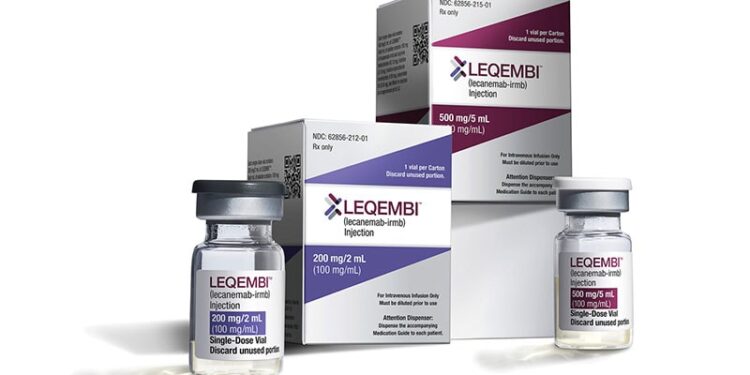TOPLINE:
Access to lecanemab among Medicare beneficiaries with Alzheimer’s disease (AD) or mild cognitive impairment (MCI) was marked by racial, ethnic, and socioeconomic disparities, a new study suggested, with early use significantly higher in men than in women, and in non-Hispanic White individuals than in Asian or Pacific Islander, Black, and Hispanic patients.
METHODOLOGY:
- Researchers performed a cross-sectional analysis and examined early trends in lecanemab use among 842,192 US Medicare beneficiaries with at least 11 months of coverage.
- In all, 1725 Medicare beneficiaries who received at least one lecanemab infusion between 2023 and 2024 were identified (mean age at initiation, 75.7 years).
- The researchers identified beneficiaries with AD and MCI using claims in the previous year.
- The analysis included age, sex, race/ethnicity, urban-rural status, and socioeconomic status.
TAKEAWAY:
- Of those who received lecanemab, 51.5% were women; 90.5% were White, 1.3% Asian or Pacific Islander, 1.2% Black, and 2% Hispanic individuals; 1.3% were socioeconomically disadvantaged; and 88% resided in urban areas.
- Among all patients with AD or MCI, lecanemab use was significantly higher in men than in women (0.27% vs 0.17%; P < .01), in urban residents than in rural patients (0.22% vs 0.14%; P < .01), and in socioeconomically advantaged patients than in those who were socioeconomically disadvantaged (0.27% vs 0.01%; P < .001).
- Lecanemab use was significantly higher among non-Hispanic White patients (0.23%) than among Asian or Pacific Islander (0.09%), Black (0.04%), and Hispanic (0.07%) patients (P < .001 for all).
- By the end of the study, 407 patients (23.6%) had discontinued lecanemab treatment, indicating substantial early discontinuation rates.
IN PRACTICE:
“Even among beneficiaries who meet initial Medicare coverage requirements for lecanemab by having documented MCI or AD, early uptake of lecanemab still appears to be marked by racial, ethnic, and socioeconomic disparities. This dynamic is consistent with a recurring historical pattern of inequitable access to breakthrough therapies administered by specialized centers, and underscores how a costly and likely low-value treatment, which contributes to higher Medicare spending, is seemingly being disproportionately utilized by advantaged populations,” the study authors wrote.
SOURCE:
This study was led by Frank F. Zhou, David Geffen School of Medicine, University of California at Los Angeles (UCLA). It was published online on May 15 in JAMA Network Open.
LIMITATIONS:
Data for Medicare Advantage beneficiaries were not available. The use of diagnosis codes to identify patients with AD or MCI underestimated MCI prevalence, misdiagnosed AD, did not consider additional lecanemab eligibility criteria, and could not distinguish between mild and moderate or severe AD, where only mild cases are eligible for lecanemab treatment.
DISCLOSURES:
This study received funding from the National Institute on Aging, National Institutes of Health, US Deprescribing Research Network, UCLA Resource for Minority Aging Research/Center for Healthcare Improvement of Minority Elders, and National Center for Advancing Translational Sciences. Three investigators reported receiving grants from or having other ties with various sources. Details are provided in the original article.
This article was created using several editorial tools, including AI, as part of the process. Human editors reviewed this content before publication.
Source link : https://www.medscape.com/viewarticle/new-data-wide-disparities-access-lecanemab-2025a1000eo7?src=rss
Author :
Publish date : 2025-05-30 10:59:00
Copyright for syndicated content belongs to the linked Source.














